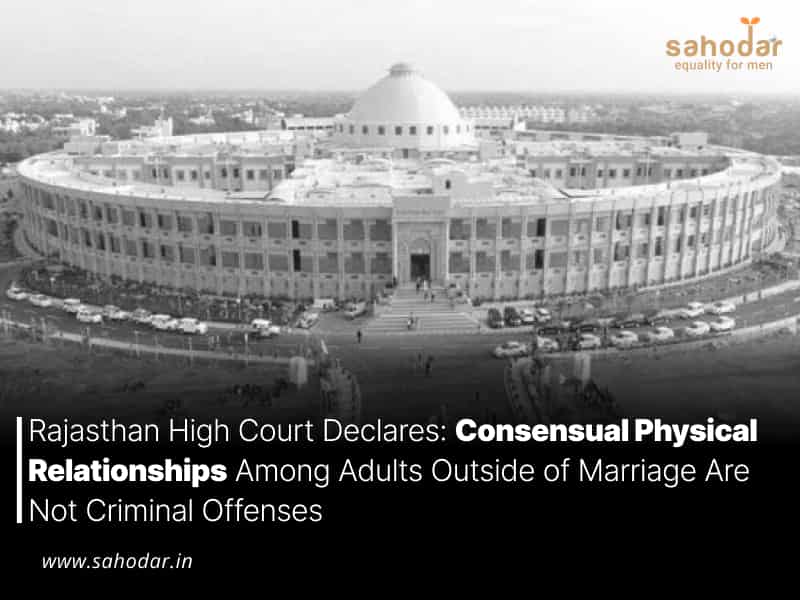In a landmark judicial pronouncement, the Rajasthan High Court has affirmed the primacy of constitutional morality over societal norms in a recent criminal adjudication. Adjudicated by Justice Birendra Kumar, the judgment establishes a significant precedent within the legal sphere, particularly concerning the interpretation of law and societal mores.
The matter under consideration pertained to the quashing of an FIR under Section 366 IPC. The petitioner, Ranveer, invoked the provisions of Section 482 Cr. P.C. to challenge the order dismissing the aforementioned FIR. Ranveer, acting as the informant, initially encountered impediments in contesting the case due to incarceration in an unrelated legal matter.
Subsequently, the Court noted the appearance of the purported victim, identified as respondent no.3, who submitted an affidavit affirming her voluntary participation in a cohabitational arrangement with one of the accused individuals, Sanjiv. Drawing upon legal precedents such as Navtej Singh Johar Vs. Union of India (2018) 10 SCC 1 and Safi Jahan Vs. Asokan K.M. 2018(6) SCC 368, the Court emphasized the paramountcy of constitutional morality in adjudicating matters concerning individual liberty and privacy.
Justice Birendra Kumar invoked the Supreme Court’s jurisprudence, asserting that “constitutional morality should invariably trump societal norms.” Additionally, reference was made to the Supreme Court’s ruling in S. Khushboo Vs. Kanniammal & Ors., affirming that while societal conventions may inform conduct, consensual relationships outside the institution of marriage do not per se constitute a statutory transgression, barring instances of adultery.
Furthermore, the judgment deliberated upon the erstwhile Section 497 IPC, which proscribed adultery. The Supreme Court’s pronouncement in Joseph Shine Vs. Union of India (2019) 3 SCC 39, which annulled Section 497 IPC, was highlighted as a seminal development elucidating the legal terrain concerning conjugal relations.
In concluding the judgment, Justice Birendra Kumar remarked, “Unless marriage is pleaded and proved, only marriage-like relationships such as living-in relationships would not come within the mischief of Section 494 IPC.” The court ultimately dismissed the applicant’s prayer, finding no merit in the case.

